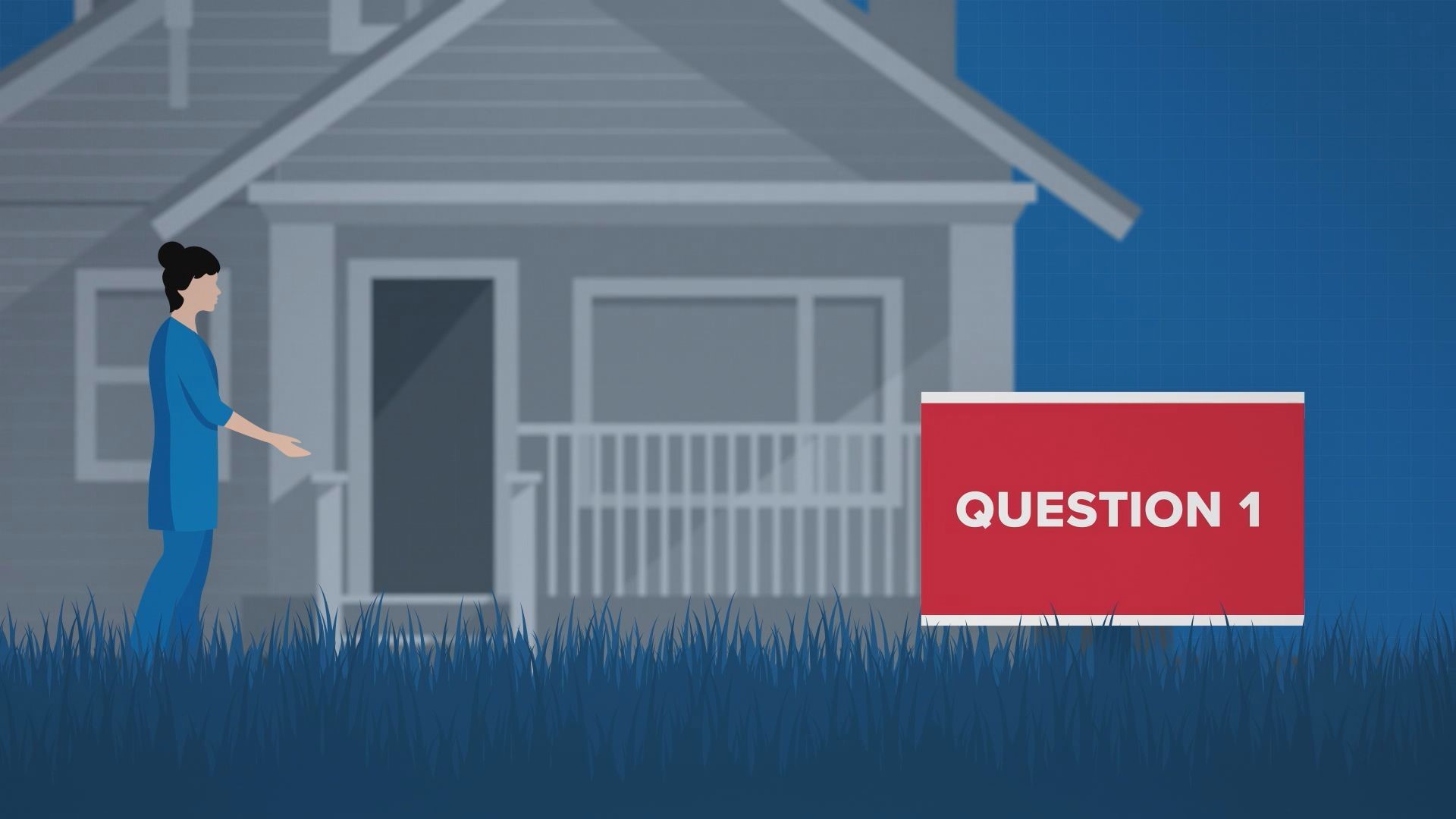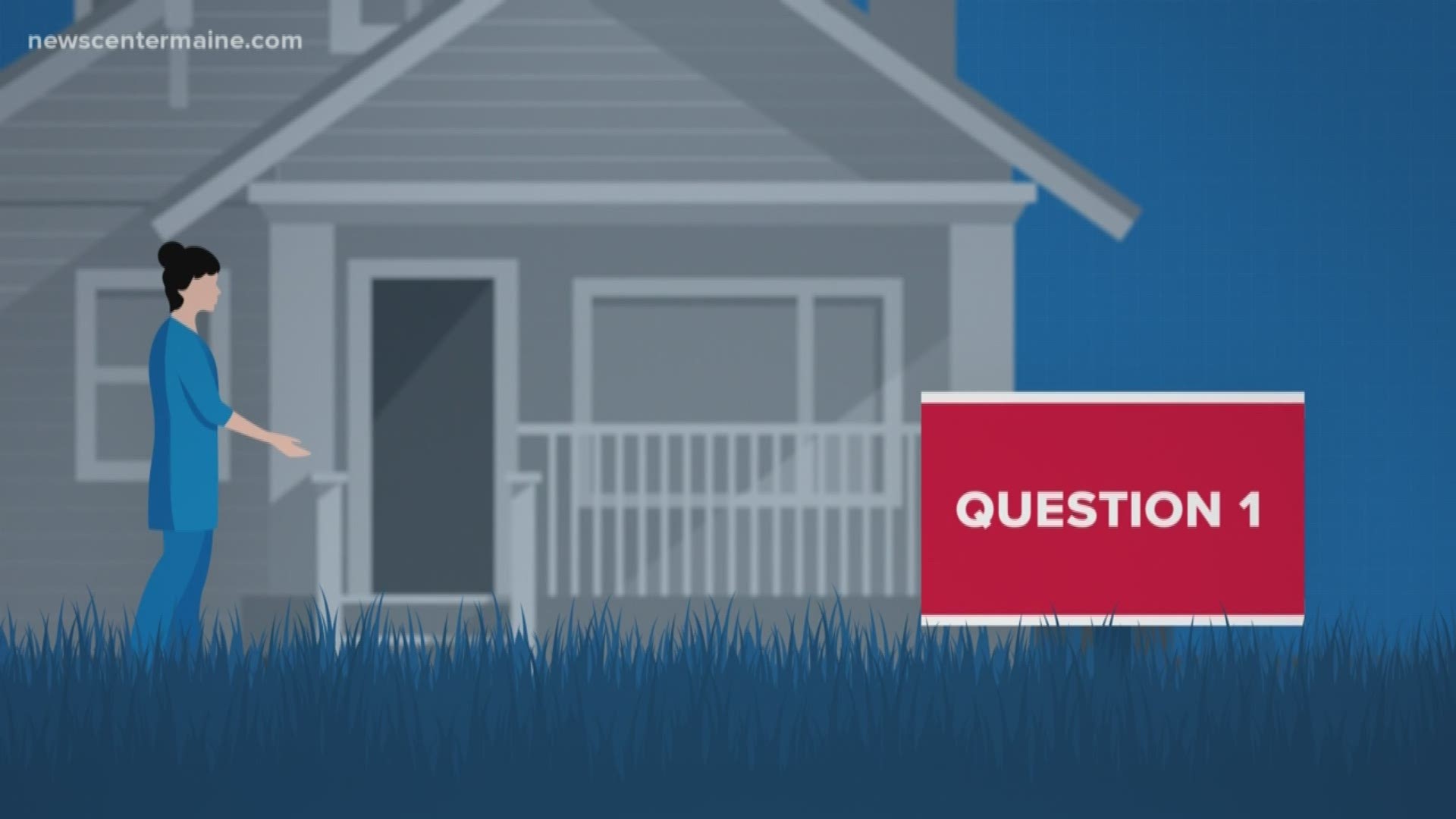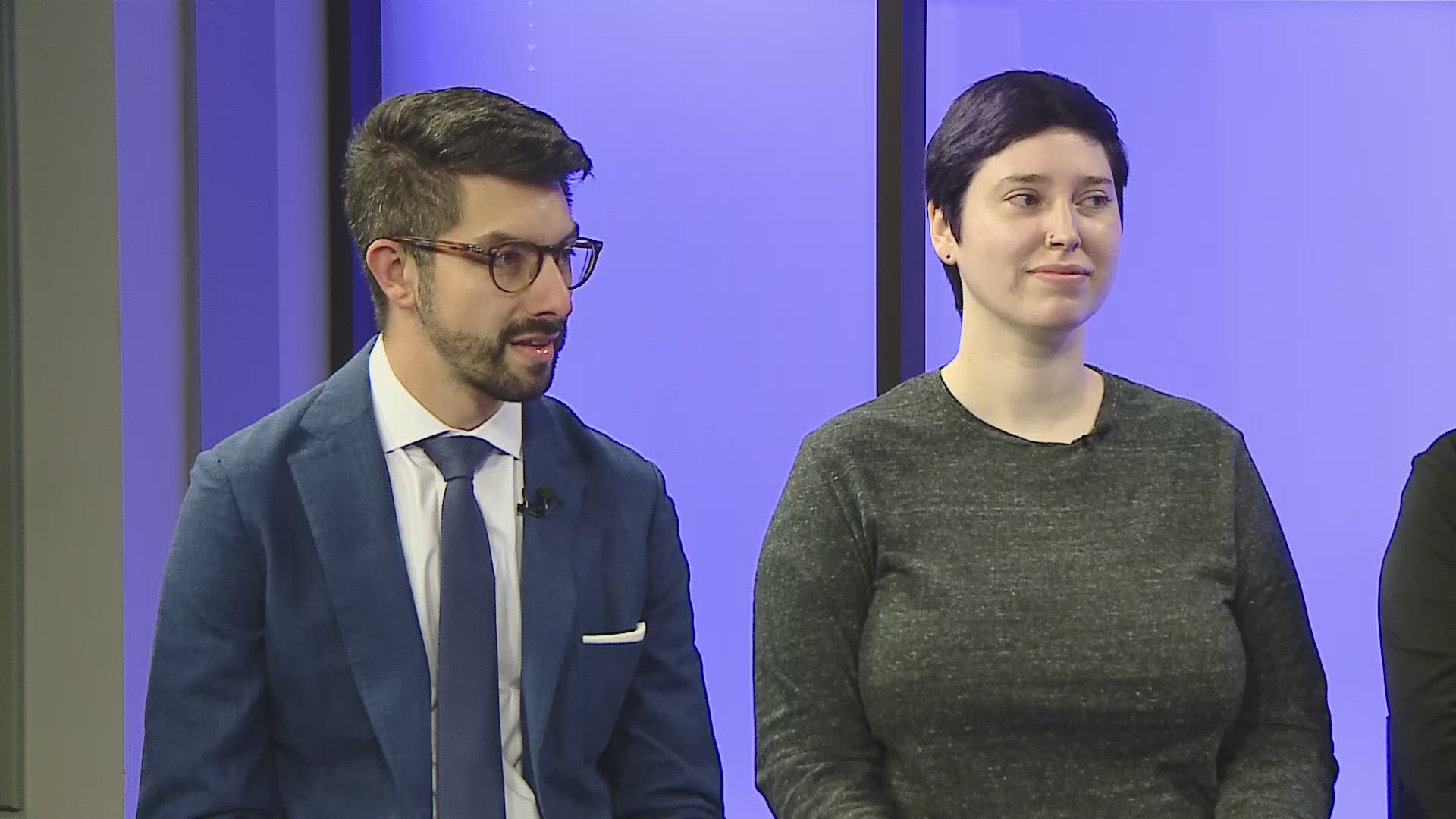MAINE QUESTION 1: What you need to know before casting your ballot
Maine's Question 1 would create a Universal Home Care Program which would provide home-based assistance to people with disabilities and senior citizens regardless of income.

PORTLAND (NEWS CENTER Maine) -- Mainers are one week away from casting their ballots and this year they will be asked to vote on Question One which would create a Universal Home Care Program that would provide home-based assistance to people with disabilities and senior citizens regardless of income.
NEWS CENTER Maine's Samantha York and Don Carrigan sat down with both proponents and opponents of the referendum question to break down what Mainer's will be voting on.
OVERVIEW
Watch the full Q&A below:
Those who oppose it say it may sound good, but when you look at the actual language and break down what the bill wants to do, it’s not that simple, saying it would do more harm than good for Maine families and small businesses.
So what does the bill actually say, let’s break it down. Here is what you will read when you go to cast your ballot:
"Do you want to create the Universal Home Care Program to provide home-based assistance to people with disabilities and senior citizens, regardless of income, funded by a new 3.8% tax on individuals and families with Maine wage and adjusted gross income above the amount subject to Social Security taxes, which is $128,400 in 2018?"
HOW MUCH WOULD QUESTION ONE COST
Those behind the question say it's a way for all families to have access to in-home care for their loved ones up until their final moments.
"What we know right now with the current system is that it's not working for most families," Kevin Simowitz with 'Yes on One' said. "The people who can most afford to pay, are paying a little bit more in so that everybody can afford care, it's more fair way to make sure that all families are able to access that home care."
However, those against the proposed legislation say this would hurt both Maine families and businesses. They say the question is extremely convoluted and not painting the true picture for Mainers.
One of the major questions that has been asked is who would cover the costs for this program. Those behind the bill say it is as simple as an “individual” who makes more than $128,400.
"It very clearly says individuals who make over 128,400 are the only people affected by that tax." Yes on One campaign manager Ben Chin said.
An analysis completed by the Maine Society of Certified Public Accountants found couples who file jointly and have a combined household income of greater than $128,400 will be required to pay the 3-point-eight percent tax, even if neither party earns above that amount.
Here is an excerpt from the analysis.
“For example, if Jane earns $50,000 a year, and her husband John earns $80,000, and they choose to file jointly, they will report $130,000 in combined income. The portion of their income above $128,400, in this case $1,600, would be subject to the additional 3.8% tax.”
They also added this note: “There is some disagreement about how the tax will impact joint tax filers when each earns less than the $128,400 threshold.”
"All we have to go on is the language. We can't step inside their head and figure out what their intent is," No on One campaign manager Newell Augur said of the ambiguity in the ballot question's language.
“You don't have to take our word for it, take democratic Secretary of State Matt Dunlap who adjusted the question to make it clear to everyone when they're voting that it's going to be families that are going to be hit with this tax -- and that is not a way to build a plan at all."
Proponents had other things to say about the interpretation of the bill’s language.
"It's the intent of the legislation, the way it's written on the petitions, to make sure it only affects personal income above that amount," said Mike Tipping, with Mainers for Home Care. "We are happy to stipulate that that is true, and if there needs to be any adjustment to make sure the legislature couldn't misinterpret it, we're happy to do that too."
WHO WOULD QUESTION ONE HELP
The way the bill is written now, anyone who is over the age of 65 and all persons with a disability in the state of Maine are eligible for services if they need assistance with at least one activity of daily living.
However, the language of the bill does not specify whether you must be a full-time Maine resident to qualify. Something opponents say is a huge red flag.
“So, the people in Maine are paying in but people from Massachusetts or New York who are here for a couple months of the year can take the benefits from it.” Auger said.
Auger says on top of that, the eligibility requirements are extremely low.
“Folks in nursing homes usually have about five activities of daily living that they need assistance with, the threshold for question one is only one activity of daily living; which could literally be I have trouble getting out of the shower,” Auger said. “So, we’re going to have non-resident millionaires with some trouble getting out of the shower who are going to qualify for this program – it’s just an absolute waste of funds.”
But proponents say they don’t believe people who are not full time residents would try to take advantage of the benefits.
“It's not a thing that you're accessing for a few months out of the year,” Simowitz said. It’s a part of being able to live in your own home and age in dignity and those aren't things that people are accessing while they are in Maine for a few months on vacation.”
Those for the bill say their main concern is keeping people in their homes for as long as they can. They want to keep costs down for families and allow them to receive any type of care they need, regardless of how big or small.
“Right now the pool of people who can afford home care services are very small and they are usually only receiving it one day a week when they may need it two, three or four days,” Simowitz said. “There are so many people who need these services but not nearly enough money to afford them.”
WHAT TYPES OF SERVICES WOULD BE PROVIDED
The MCPA’s analysis of Question One states “services would include, but would not be limited to, home health care aides; rent subsidies; home repair and transportation assistance; speech therapy and counseling; and hospice care.”
The bill itself reads:
“These services include, but are not limited to, self-directed care services; medical and diagnostic services; professional nursing; physical, occupational and speech therapy; dietary and nutrition services; home health aide services; personal care assistance services; companion and attendant services; home repair, chore and homemaker services; respite care; hospice care; counseling services; transportation; small rent subsidies; various devices that lessen the effects of disabilities; and other appropriate and necessary social services.”
HOW WOULD THESE SERVICES BE PROVIDED
All services would be provided by in-home care workers who work for different organizations around the state.
Those behind Question One say this program would generate more jobs for Mainers and bring in more skilled workers to fill positions.
However, many groups like Maine Hospital Association and the Home Care and Hospice Alliance of Maine have expressed serious concerns about the proposed legislation.
One concern is that there is already a shortage of trained workers, Question One would create more work for them that they might not have people to take on.
WHAT HAPPENS IF THE BILL PASSES
If passed, the bill becomes law. Changes to the language or aspects of the bill could be made, but there is no guarantee it would be a quick process.
“Anyone who is banking on the idea that the legislature can or will fix something, quite frankly, is playing with house money.” Auger said.
"I think it's also important for us to remember that ballot initiatives go to the legislature to be implemented, so this is what happens next in the process if we win," Simowitz said. "No one wants this tax to apply to anyone but individuals."
This story will be updated.



